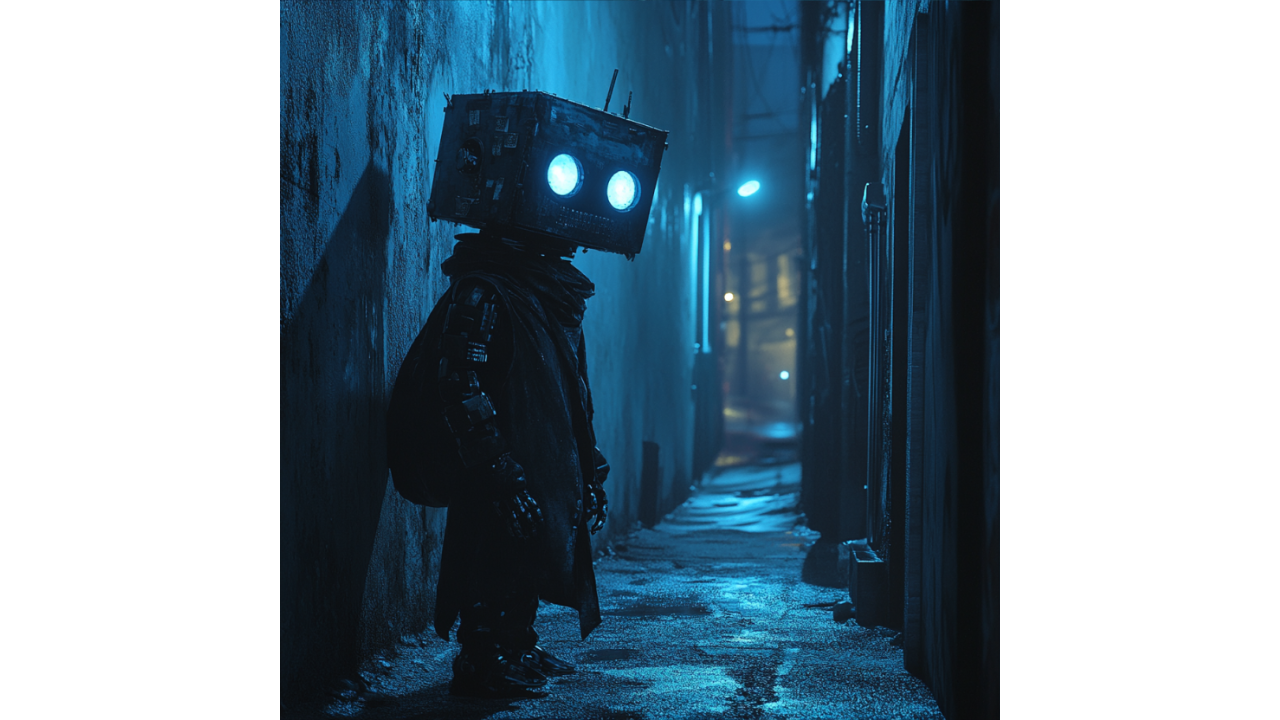5 min read
AI's Premium Pricing = Tech's Broken Promises
History doesn't repeat, but it rhymes. Google's $250/month AI Ultra subscription isn't just another premium product launch—it's the digital...
-2.png)
Here's a thought that might sound radical in 2025: artists deserve to get paid when their work powers billion-dollar AI companies. Revolutionary, right? Yet somehow, in the breathless rush to build the future, the tech industry convinced itself that "move fast and break things" included breaking the fundamental concept of intellectual property rights.
The tide is finally turning. Getty Images' landmark lawsuit against Stability AI, which began trial this week in London's High Court, represents what Getty's legal team perfectly described as a "day of reckoning" for the AI industry's cavalier approach to copyright. This isn't just another corporate legal squabble—it's the opening salvo in what could become the creator renaissance we desperately need.
The David vs. Goliath Moment We've Been Waiting For
Let's be clear about what we're witnessing. Getty Images is spending "millions and millions of dollars" fighting Stability AI over the alleged theft of 12 million copyrighted images used to train Stable Diffusion without permission or compensation. The stakes couldn't be higher: Getty is seeking $1.7 billion in damages at $150,000 per infringement, sending a clear message that creativity has value.
@aeyespybywinsome Getty is suing Stability AI for 1.7B. #aitheft #aiart #getty
♬ original sound - AEyeSpy
Stable Diffusion: An AI image generation system that creates new images from text prompts, trained on massive datasets including millions of copyrighted images scraped from the internet without creator consent.
Copyright Infringement in AI Training: The unauthorized use of copyrighted materials to train AI models, which involves copying, processing, and storing protected works without permission from creators or rights holders.
This case matters because it challenges the tech industry's most toxic assumption: that anything accessible online is fair game for algorithmic consumption. Stability AI's alleged approach—scraping millions of images regardless of copyright status, watermarks, or even pornographic content—epitomizes the "take first, ask questions never" mentality that has defined AI development.
The legal significance cannot be overstated. Justice Joanna Smith described the case as "highly complex and technical" and raising "numerous novel issues for consideration by the court," requiring "unprecedented amounts" of time to address. This is groundbreaking territory, and the precedent set here will ripple through every AI company's boardroom.
Getty's position brilliantly reframes the entire AI debate. As their barrister Lindsay Lane told the court, "This is not a battle between creatives and tech, where a win for Getty Images means the end of AI." Instead, it's about creating what they call "synergistic harmony" between the industries.
The beauty of this approach is its fundamental optimism. Getty recognizes that "artificial intelligence has the potential to stimulate creative endeavors" while insisting on proper licensing and compensation. They've already proven this model works, providing licenses to leading technology innovators for AI training purposes that respect intellectual property rights.
Licensing in AI Development: Legal agreements where AI companies pay creators and rights holders for permission to use copyrighted works in training datasets, ensuring fair compensation and legal compliance.
This isn't anti-innovation—it's pro-creator innovation. When AI companies pay for training data, they incentivize the creation of higher-quality content while building sustainable relationships with the creative community. It's the difference between a parasitic and symbiotic ecosystem.
The momentum is building beyond Getty's case. Artists have scored significant victories in federal court, with judges allowing copyright infringement claims against major AI companies to proceed, including cases where courts found AI models may have been "built to a significant extent on copyrighted works" with intent to "facilitate" infringement.
The numbers tell a story of massive value transfer from creators to tech giants. Stability AI has raised hundreds of millions in funding—including recent investment from WPP—while the creators whose work powers their systems received nothing. That's not disruption; it's exploitation with better marketing.
But change is accelerating. Recent court rulings have established that artists don't need to identify specific individual works used in training to pursue valid copyright claims, making it easier for creators to seek justice. The legal system is finally catching up to the AI industry's "move fast and break things" approach.
LAION Dataset: An open-source collection of 5 billion images scraped from the internet, widely used by AI companies to train image generation models, often without checking for copyright status or obtaining permissions.
The broader implications extend far beyond image generation. As AI systems become more sophisticated, they'll require higher-quality, more diverse training data. Companies that build relationships with creators through fair licensing will have competitive advantages over those that rely on scraped content of questionable provenance.
What excites us most is the potential for AI to genuinely enhance human creativity rather than replace it. When creators are properly compensated for training AI systems, they have incentives to produce better, more innovative content. When AI companies work with rather than against creators, they can develop more nuanced, culturally sensitive, and ethically sound systems.
The Copyright Office has already established important principles, ruling that AI-generated works without human input cannot be copyrighted, ensuring that human creativity remains legally protected and economically valuable. This creates a framework where AI augments rather than replaces human creative work.
Human Authorship Requirement: The legal principle that only works created by humans can receive copyright protection, ensuring AI-generated content cannot be copyrighted without significant human creative input.
Early indicators suggest this balanced approach works. Getty CEO Craig Peters notes that licensing AI training data represents a new revenue stream for creators while ensuring ethical AI development. It's a win-win model that other industries could emulate.
This lawsuit represents something larger than copyright law—it's about whether we'll build an AI future that values human creativity or treats it as free raw material for algorithmic processing. The outcome will determine whether creators can participate in AI's economic benefits or become casualties of technological progress.
The stakes extend beyond individual artists to entire creative industries. If AI companies can freely use copyrighted works without compensation, we risk hollowing out the economic foundation that supports professional creativity. But if we establish fair licensing frameworks, we can create an AI ecosystem that strengthens rather than undermines creative professions.
Legislative momentum is building alongside legal victories. Proposed bills like the Generative AI Copyright Disclosure Act would require companies to disclose training datasets, giving creators more transparency and control over their work's use in AI systems.
Bottom Line: Getty's lawsuit isn't about stopping AI progress—it's about ensuring that progress includes rather than excludes the creators whose work makes AI possible. The emerging legal framework for AI and copyright represents a historic opportunity to build technology that serves human creativity rather than exploiting it.
The future belongs to AI companies that embrace this collaborative model, recognizing that the best AI systems will emerge from partnerships with rather than theft from creative communities. At Winsome Marketing, we help brands navigate this evolving landscape while supporting ethical AI development that respects creator rights.
Ready to build AI strategies that support rather than exploit creativity? Our growth experts understand how to leverage AI capabilities while maintaining ethical standards that protect creator rights and build sustainable competitive advantages. Let's discuss your AI approach.

5 min read
History doesn't repeat, but it rhymes. Google's $250/month AI Ultra subscription isn't just another premium product launch—it's the digital...
-4.png)
Sometimes the most important conversations happen in the spaces between the words. When Jensen Huang toured London, Paris, and Berlin last week,...

Rockwell Automation's latest State of Smart Manufacturing Report reveals a sector racing toward the future with remarkable velocity: 56% of...